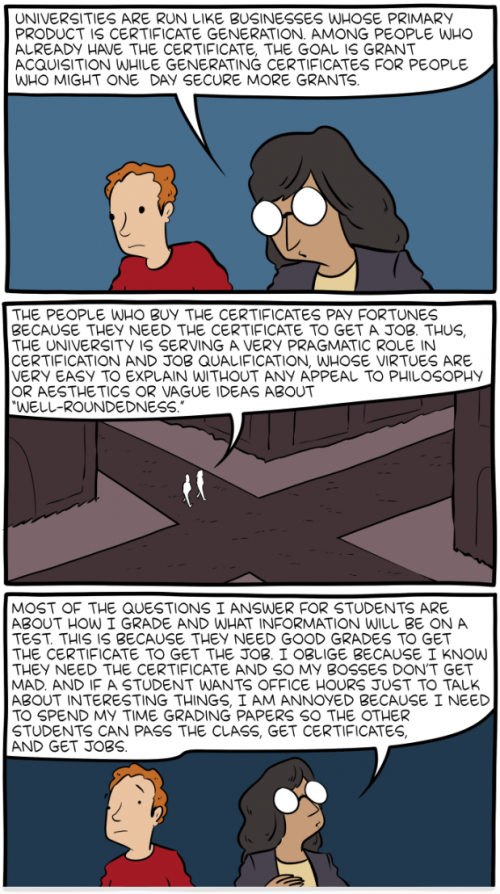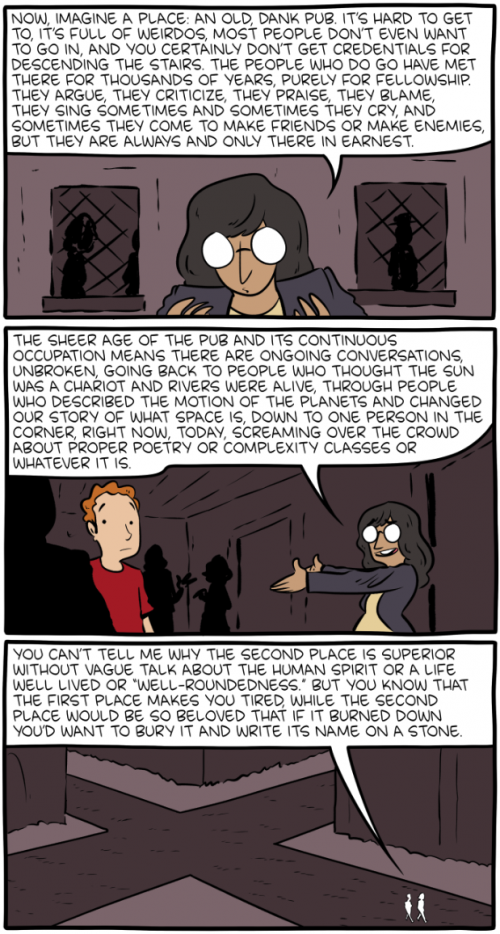Not content with denying the existence of gay people, or policing the kindergartens, Florida governor Ron DeSantis is going after the universities. He wants to abolish tenure.
Every five years, he said, tenured faculty would be required to go before their university’s board of trustees, which could part ways with them. The text of the bill does not give that level of specificity but rather states a five-year review would take place to be determined by the state Board of Governors. Each state university already requires tenured professors to take part in an annual review.
“Tenure was there to protect people so that they could do ideas that may cause them to lose their job or whatever, academic freedom — I don’t know that’s really the role it plays, quite frankly, anymore,” DeSantis said. “I think what tenure does, if anything, it’s created more of an intellectual orthodoxy. For people that have dissenting views, it becomes harder for them to be tenured in the first place and then, once you’re tenured, your productivity really declines, particularly in certain disciplines.”
House Speaker Chris Sprowls called the legislation a way to prevent “indoctrination.”
Here we go. Here’s where they reveal their real agenda.
He also said it would increase transparency with a provision that would require course syllabuses to be posted online, preventing attempts by professors to “smuggle in ideology and politics.” Sprowls said it would prevent students from signing up for a class on “socialism and communism” when they thought they were signing up for “Western democracy” and classes about “what it means to be an actual American.”
How dare those professors “smuggle in ideology and politics”…into political science courses. How dare they teach about other political systems than Republican-approved ideologies! That’s what this is really about, not to protect dissenting views, but to enforce their ideology.
The tenure system as it currently stands absolutely does not allow one to be denied or stripped of tenure for political reasons — you cannot fire someone for voting Republican. DeSantis plans to change that so you can fire someone for being a Democratic activist, or for teaching about “socialism and communism”. Tenure is specifically about keeping political biases out of the hiring & firing process. Florida Republicans are aiming to inject those biases back in.
Florida faculty are trying to fight back.
Currently, the boards of trustees must approve all faculty who receive tenure, Gothard said, adding it is not a lifetime appointment. Faculty can still be fired with cause.
”Tenure allows for due process and a hearing and has typically protected people from being fired for political reasons,” he said. ”From where we stand, the only indoctrination happening right now is coming from Tallahassee.”
Tim Boaz, president of the University of South Florida’s faculty senate, said he believed the legislation resulted from misconceptions about higher education.
The Republicans are also trying to jigger the accreditation agencies, forcing the universities to change agencies every few years. That is insane. Accreditation is already a bureaucratic nightmare, with outside regulators demanding a complete accounting of every detail of the university’s machinery — which is a necessary nightmare, and making universities accountable is good practice. But right now we go through the cycle and we get suggestions from the agency about what needs to be improved, and get goals to implement before the next cycle, and we can use prior recommendations in our next review to show that we’ve been addressing the criticisms. Pull the rug out from under us and change agencies, and you’ll be greatly increasing that bureaucratic workload.
Also, you know where this is going: suddenly switching in the American Bible College Accreditation agency for a secular agency is going to wreak havoc.
Good luck, Floridians. I wouldn’t recommend taking a tenure track job in Florida to anyone anymore. The universities are going to be packed with Liberty University graduates from now on, and they suck.








